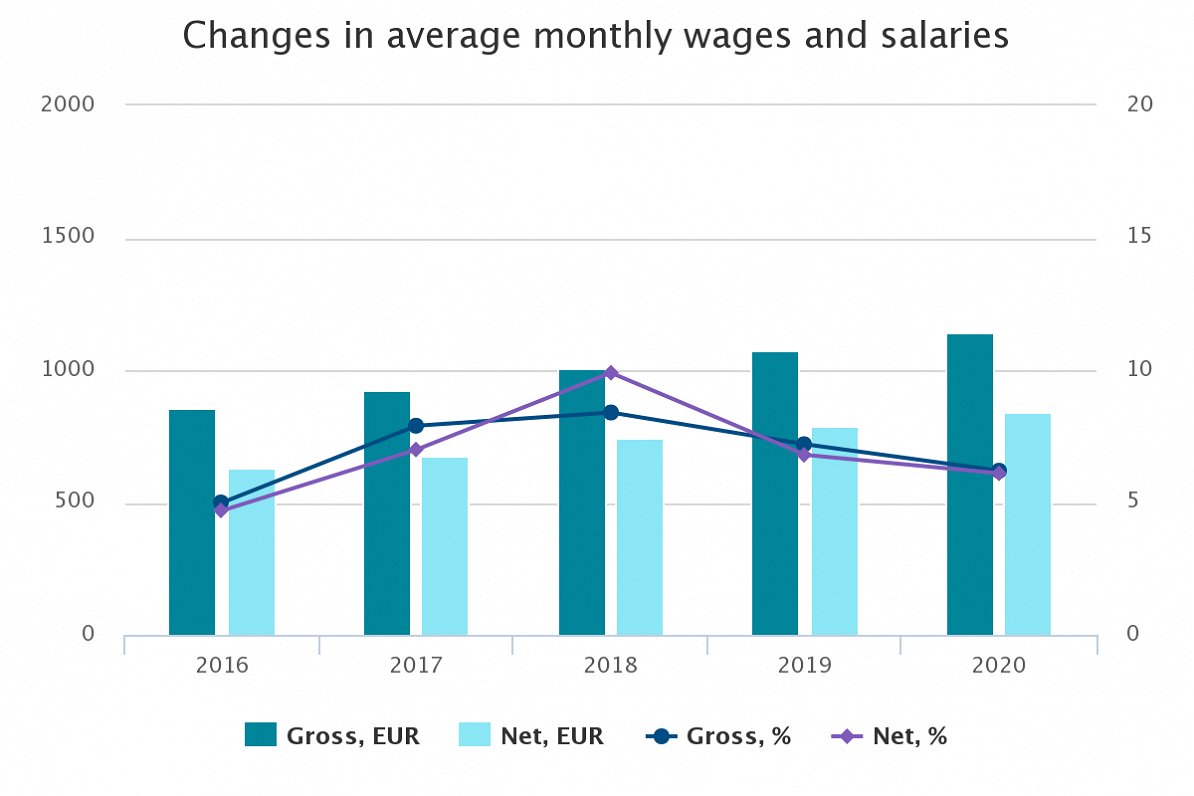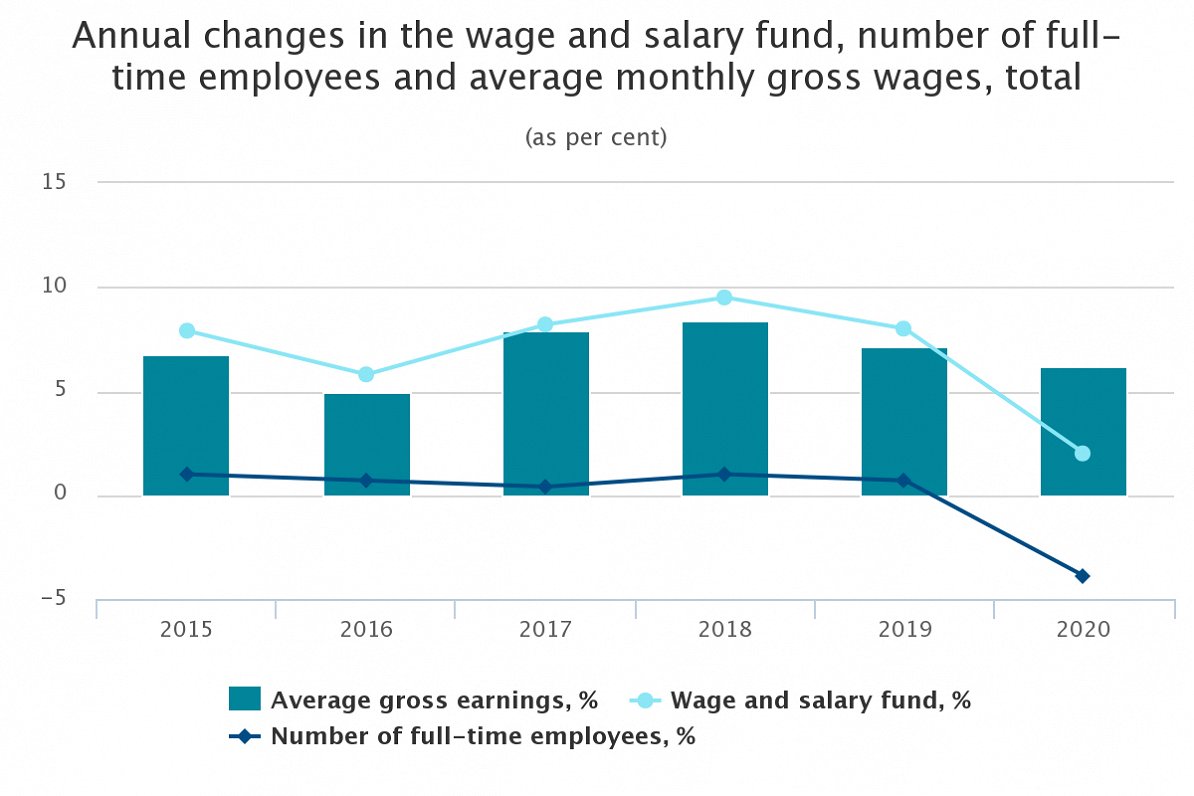Compared to 2019, the average monthly salary increased by EUR 66 or 6.2 %, but the salary for one hour worked before taxes - by 6.6 % (from EUR 7.47 to 7.97).
Average wages and salaries after taxes – EUR 841
Average net wages and salaries (calculated based on labor taxes applicable on workplace) comprised EUR 841 or 73.6 % of the gross salary. It increased by 6.1 % during the year.
The real increase in net wages and salaries, taking into account the rise in consumer prices, was 5.9 %.
Median wages and salaries comprised EUR 893
The median gross wage in 2020 was EUR 893. Compared to 2019 (EUR 832), it grew slightly faster than the arithmetic average salary - an increase of 7.3 %. In 2020, net median wages after taxes (net) constituted EUR 664 and rose by 5.9 % over the year.
Median is calculated based on the information available in statistical surveys and the State Revenue Service.
The median is the average in the middle of the ascending or descending order of wages of the employees, i.e., half of the wages are higher than the median and the other half are lower. As median, compared to the mean arithmetic earnings, is not influenced by extremely high or low wages and salaries, it reflects typical earnings more precisely.

Average wages and salaries are affected not only by increases or decreases in wages and salaries of employees, but also by structural changes in the labour market - companies that started and closed down during the year, changes in the number of employees and workloads. The impact of these factors is generally reflected in changes in the wage and salary fund and the number of full-time employees used to calculate average wages.

Due to the COVID-19 crisis in 2020, compared to last year, the number of employees in the country, recalculated as full-time, decreased by a total of 29.3 thousand. or 3.9 %. It was affected by redundancies, reductions in workloads and a decrease in the number of full-time employees due to downtime benefits. The decrease was observed in all sectors, except for information and communication services, real estate and health and social care, where there was an increase in number of employees.
The wage and salary fund in the country as a whole increased by EUR 200.8 million or 2.0 %, but its decrease was observed in transport and storage, accommodation and food service activities, administrative and support service activities, arts, entertainment and recreation, and other services.
You can read the full report on the Central Statistical Bureau website.




























